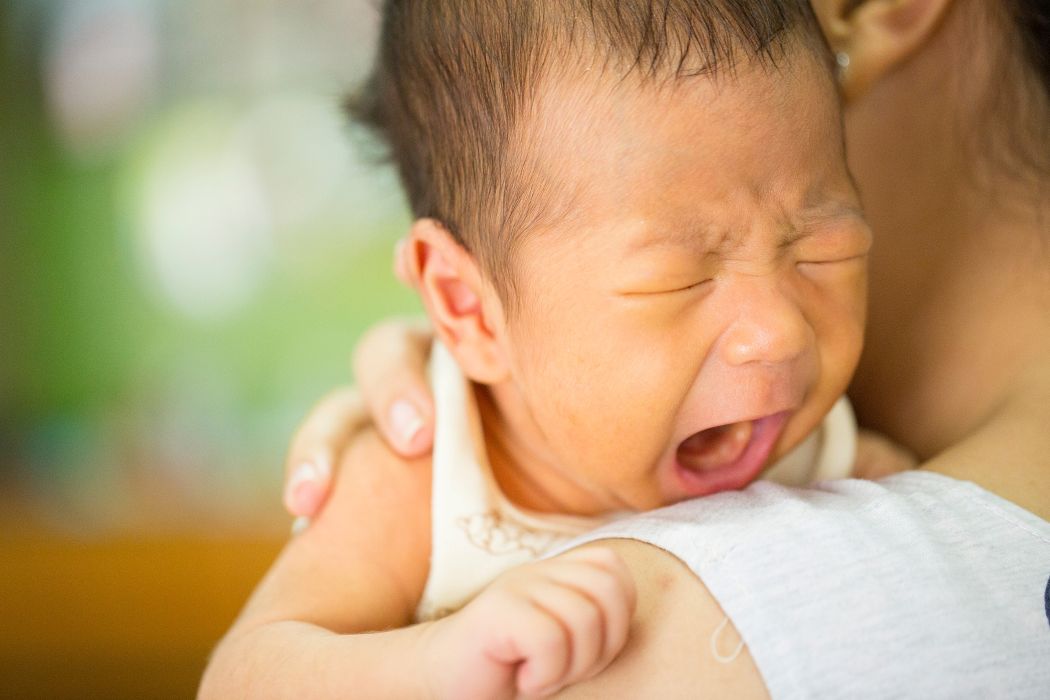Author of ‘Intentional Fathering – 7 Strategies To Be More Intentional In Your Fatherhood Journey’ speaks on how fathers can be more intentional in their parenthood journey.
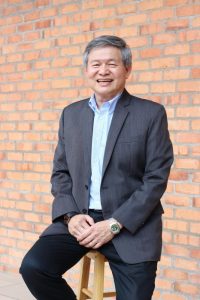
Mr Lee Wee Min, Founder of Focus on the Family Malaysia and author of ‘Intentional Fathering – 7 Strategies To Be More Intentional In Your Fatherhood Journey’
What does being a father actually mean? Is he the provider? The protector? The disciplinarian? All of the above? Compared to 20-30 years ago, many fathers these days seem to be more aware and involved in their role of being not just a father to his child, but as Daddy, Papa, or Abah – which is a great thing for sure, but not every father is taking full responsibility of becoming an intentional father.
Could it be the awareness? Could it be the way he was brought up? Or is he just too busy and leaves it to the children’s mother to handle the parenting part?
For this Father’s Day special, we interviewed Mr Lee Wee Min, Founder of Focus on the Family Malaysia and author of ‘Intentional Fathering – 7 Strategies To Be More Intentional In Your Fatherhood Journey’ on what he thinks being a father actually means.
Malaysian Dads In This Era
Parenthood(PH): What are your thoughts on Malaysian Dads in this era?
Lee Wee Min: I am very encouraged to see more and more fathers are being intentional in creating a positive impact on their children compared to 1-2 decades ago. This is a positive trend but I feel that this is still not enough to create a “tipping point” (to create a positive influence and culture of the importance of the role of fathers in the lives of their children).
There are a few reasons and dynamics when it comes to fathers being intentional in their role but personally, I narrow it down to TWO main ones.
- Fathers are too busy and therefore it is easy to abdicate and entrust the primary parenting role to mothers.
- Lack of know-how and understanding on their role.
Culture may be an issue if they have no experience of any positive role modelling of an involved father in their growing up years. However, I think there is more awareness created now by society and organisations set up to promote strong family values.
Awareness is always a good reminder, but awareness does not provide the skills and avenue to cultivate the positive role of fathers.
“Culture may be an issue if they have no experience of any positive role modelling of an involved father in their growing up years.”
PH: A lot of fathers just see themselves as a provider for the family. But what do you think being a father actually means?
Lee Wee Min: Seeing fathers as the primary provider for the family is certainly a cultural norm and many fathers are doing well in this area. However, what children really need from fathers is not just “food on the table” (which is necessary) but as well as being engaged and journeying with our children as they grow up and model for them in the areas of values, roles, responsibilities.
All these are real life skills for our children to succeed in their lives as they grow up to become independent and responsible adults.
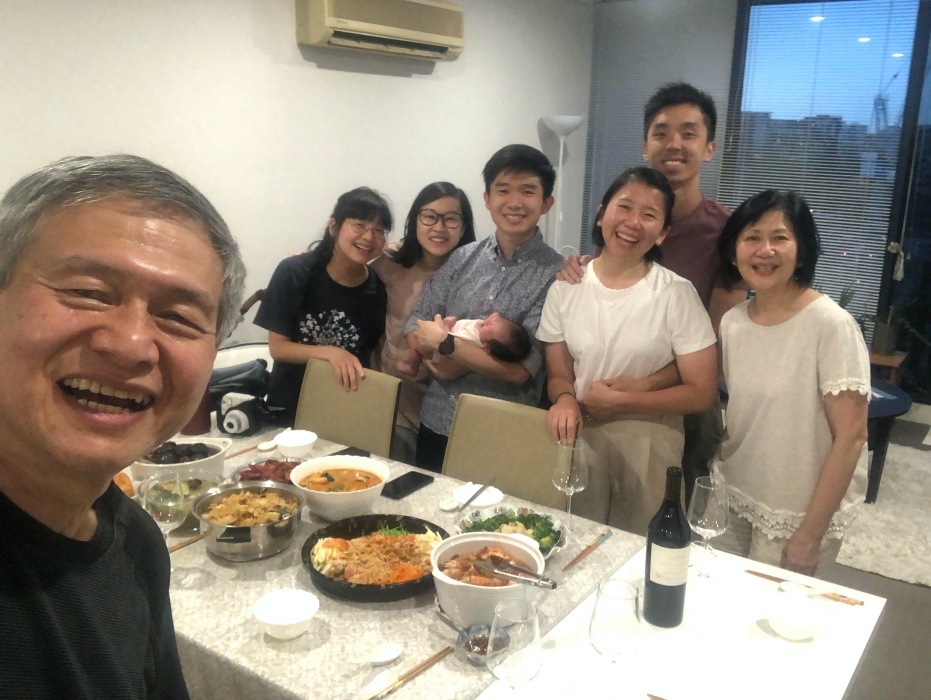
The Fatherly Figure
PH: Your father was a huge inspiration in your parenthood journey, what are some of the biggest lessons that he has taught you over the years?
Lee Wee Min: My father was a very simple man but yet someone with much determination to pass on a positive legacy. Some lessons I have learnt from him, which I also pass on to my children include, the importance of: Communication, Integrity, Honesty, Discipline, Respect, Purity and Humour. (I did include this in my book, Intentional Fathering)
PH: Other men might not have such a great fatherly role model as you did, do you think this affects how they would be as a father?
Lee Wee Min: It is easier if there is a role model for us in our role as fathers BUT it is not impossible for us to begin from where we are as there are now so many resources available on print and online. Resources which go beyond books but regular seminars (webinars nowadays), life coaching, counselling etc.
Hence the key is – Intentionality. It all starts with being made aware of the importance and then intentionally setting aside time and resources to learn and develop the role as a father by putting it into practice with what we learn. It is an ongoing process. I have three adult children and I am still a work in progress – at a different life-stage and journey as a parent & grandparent but still learning and putting into practice what we learnt is paramount to success. Also, not to give up if it does not work out the first time but to persevere. Your perseverance itself is a positive lesson to your children.
“Your perseverance itself is a positive lesson to your children.”
PH: How can wives help to encourage their husbands to be active fathers?
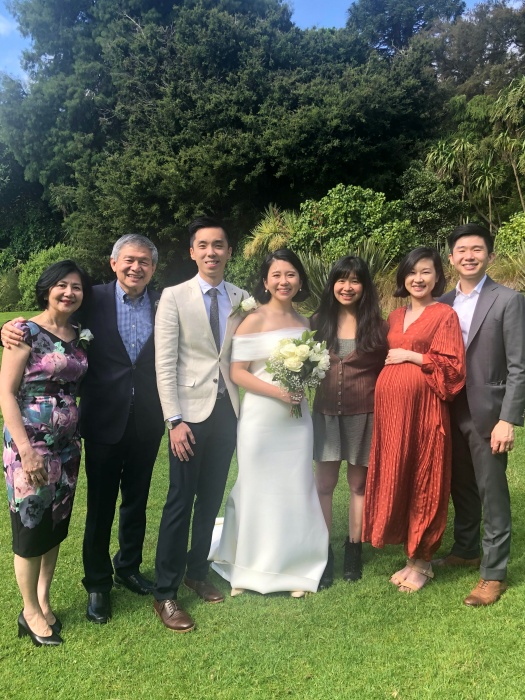 Lee Wee Min: For me, my wife is my greatest cheerleader in my role as a father because she sees me doing it more than anyone else (other than my children of course). All of us thrive on being affirmed and therefore if fathers are intentional and active in playing their role, mothers SHOULD come alongside and encourage their husbands. This would mean a lot to them.
Lee Wee Min: For me, my wife is my greatest cheerleader in my role as a father because she sees me doing it more than anyone else (other than my children of course). All of us thrive on being affirmed and therefore if fathers are intentional and active in playing their role, mothers SHOULD come alongside and encourage their husbands. This would mean a lot to them.
Do not make comments like “It’s about time that you spend time with John”, “Why are you taking the day off to spend time with Beng? Feeling guilty?” etc. You get my drift. Rather, “I am so proud of you dear, for spending time with John”, “ Wow, dear, taking the day off to be with Beng before his exam will really be such an encouragement to Beng, Thank you for doing this” etc.
Intentional Fathering – 7 Strategies To Be More Intentional In Your Fatherhood Journey
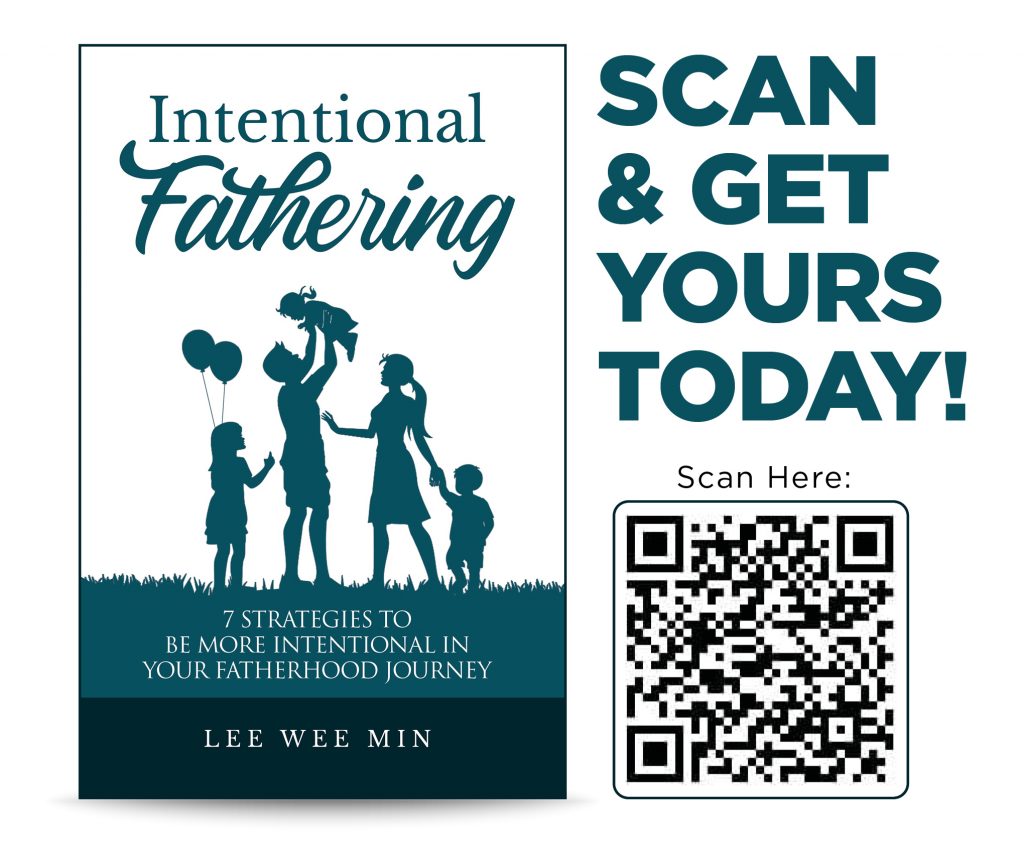 PH: Tell us a bit about your latest book. What inspired you to write the book?
PH: Tell us a bit about your latest book. What inspired you to write the book?
Lee Wee Min: After writing my first book on “Parenting – A Roller Coaster Experience”, I wanted to write a book on marriage, but, when I was looking at the trend and situation, I decided to write a book on Fathering as I feel that there are few resources in this area from an Asian perspective as well. Fatherhood can be a lonely journey and many fathers are struggling because of a lack of role modelling in their lives.
Also, I wanted to write a book on simple doable strategies for fathers to be able to put into practise and then find their role to be fun, meaningful, and rewarding for them as an individual, a husband and a father. It is really a book to help fathers thrive and not just survive.
PH: What are your hopes for fathers after reading this book?
Lee Wee Min: I hope that fathers would not just put the book down after reading it and put into practice what they have read, BUT, they would be like a spark to pass it on to another father and then to another and together, we can be that “tipping point” to change the culture on being Intentional and Involved fathers.
Lily Shah
With a background of empowering women through talkshows on all thing Womanhood, it was natural for Lily to start empowering women on one of the biggest role they carry (a mother) after having one of her own. As a millennial mum with 2 young boys herself, she understands what new parents are going through and seeks to empower, inspire and ease parents on their biggest adventure yet- Parenthood!










